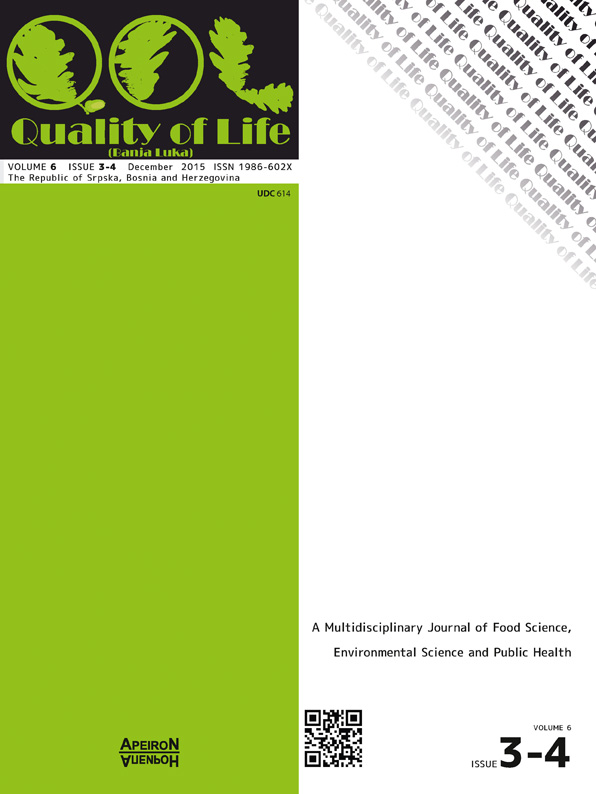The eating habits of men and women in adolescence
DOI:
https://doi.org/10.7251/QOL1503053LAbstract
The period of adolescence is characterized by rapid physical, biological and social changes, which is reflected in a specific daily rhythm of work, behavior and diet. Diet of adolescents is characterized by eating large amounts of fast food. Social changes of population that have occurred in recent years affect the behavior of adolescents and their eating habits. The aim of the research in this paper was to determine the attitude of high school students from several towns in the Republic of Srpska (Bosnia and Herzegovina) toward eating and consumption of fast food as food products that are commonly found in their menu.
In this paper, a survey is conducted among high school students of both sexes aged between 15 and 18. The survey included 12 questions that can be classified into two groups: knowledge of fast food and eating habits.
Half of the interviewees (49.73%) believe that there is no particular reason for choosing fast food, while one-third (33.78%) choose this kind of food products because of their taste. 51.60% is careful about the amount of fast food that they eat. Over half of the interviewees (58.09%) do not have a reason to give up consuming fast food, and 31, 58% do it so because they think that this diet is harmful to health.
For breakfast 19,11% of the interviewees eat croissants and buns, sandwiches or candies that they buy on their way to school. During and after meals 33.62% of the interviewees usually drink water, and 21.53% drink refreshing fizzy drinks or fruit juices (21.02% of responses). The amount of fizzy drinks that the interviewees drink during the day goes from one glass (30,09%) to 2-3 glasses (24.7%). The interviewed students mostly like eating meat and vegetables (37.82%), fruit (23.06%), but they do not like eating vegetarian dishes (31.04%), strongly flavored dishes (18.07% ) and meatless dishes (17.24%).
